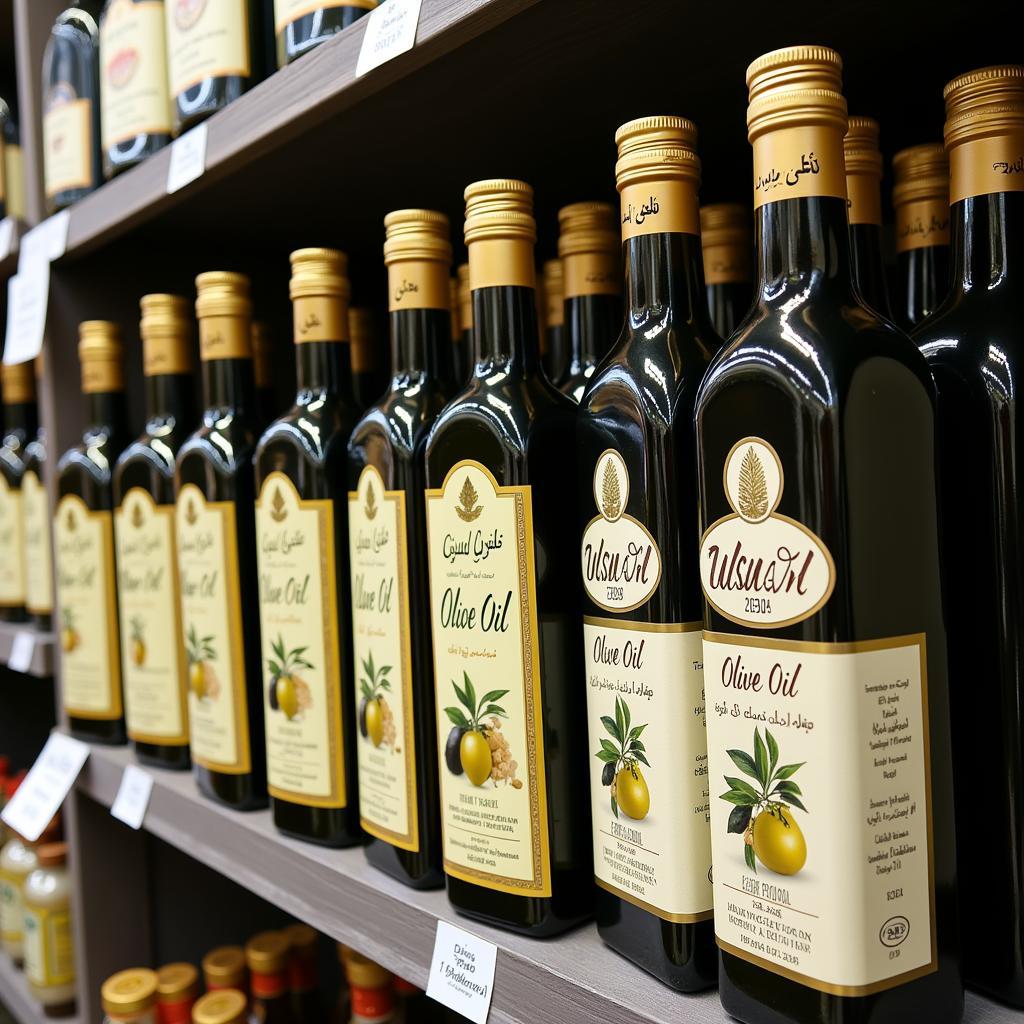The olive tree, a symbol of peace and abundance, is steadily gaining traction in Pakistan. Once a rare sight, olive groves are slowly dotting the landscape as farmers recognize the potential of this resilient and profitable crop. This burgeoning industry holds immense promise for both economic development and a healthier future for Pakistan.
The Rise of Olive Tree Cultivation in Pakistan
For decades, Pakistan relied heavily on imported olive oil, a staple in many cuisines and renowned for its health benefits. However, recognizing the economic drain and the potential of its own land, the Pakistani government, along with international organizations, initiated programs to promote olive cultivation. These initiatives provided farmers with free saplings, training, and financial assistance, encouraging them to embrace olive farming.
Ideal Growing Conditions
Olives, native to the Mediterranean region, thrive in arid and semi-arid climates with well-drained soil. Pakistan, with its diverse climate and vast swathes of land suitable for olive cultivation, is uniquely positioned to become a major olive producer. The Pothohar Plateau, in particular, has emerged as a prime location for olive plantations, boasting the ideal temperature and rainfall for optimal olive growth.
Economic and Health Benefits
The growth of the olive industry in Pakistan brings a wealth of benefits. Firstly, it reduces the nation’s reliance on imported olive oil, saving valuable foreign exchange. Secondly, the sale of locally produced olive oil creates jobs and boosts the rural economy, empowering farmers and local communities.
Furthermore, the increased availability of high-quality, domestically produced olive oil promotes healthier eating habits. Olive oil is rich in monounsaturated fats, antioxidants, and anti-inflammatory properties, linked to a reduced risk of heart disease, stroke, and certain types of cancer. By incorporating more olive oil into their diets, Pakistanis can improve their overall health and well-being.
Challenges and the Path Forward
Despite the significant progress, challenges remain. Olive trees take several years to reach full maturity and yield a substantial harvest. This initial investment period can be challenging for some farmers, particularly smallholders. Additionally, there’s a need for greater awareness among consumers about the benefits of locally produced olive oil and the importance of supporting the domestic industry.
Investing in Technology and Research
To overcome these obstacles, Pakistan needs to invest in research and development to optimize olive cultivation techniques, develop pest-resistant varieties, and improve the quality of olive oil production. Investing in modern olive processing technology can also enhance the competitiveness of Pakistani olive oil in the global market.
Promoting Olive Oil Consumption
 Olive oil for sale in Pakistan
Olive oil for sale in Pakistan
Creating awareness about the benefits of olive oil and promoting its culinary versatility is crucial. This can be achieved through public health campaigns, cooking demonstrations, and collaborations with chefs and food bloggers to showcase the use of olive oil in Pakistani cuisine.
Conclusion
The olive tree, once a newcomer to Pakistani soil, is steadily taking root, symbolizing a promising future for the nation. With continued government support, farmer dedication, and consumer awareness, the olive industry has the potential to flourish, bringing economic prosperity, healthier lives, and a taste of the Mediterranean to Pakistan.
FAQs
1. Where are olives grown in Pakistan?
Olives are primarily grown in the Pothohar Plateau region of Pakistan, which offers the ideal climate and soil conditions for olive cultivation.
2. What are the health benefits of consuming olive oil?
Olive oil is rich in monounsaturated fats, antioxidants, and anti-inflammatory properties, which can reduce the risk of heart disease, stroke, and certain cancers.
3. How can I support the Pakistani olive industry?
You can support the industry by choosing locally produced olive oil, learning more about its benefits, and spreading awareness among friends and family.
4. Are there any government initiatives to promote olive cultivation in Pakistan?
Yes, the Pakistani government, in collaboration with international organizations, has implemented programs providing farmers with free saplings, training, and financial assistance.
5. Where can I find more information about olive cultivation in Pakistan?
For more information, you can contact the Ministry of National Food Security & Research or visit their website.
Need help with your skincare routine or want to explore natural hair care solutions? Check out our articles on body scrub pakistan, best oil for hair growth in pakistan, and turkish shampoo in pakistan. You can also find the best body scrub in pakistan with price and explore options for tinted moisturizer pakistan.
For any inquiries or assistance, our dedicated customer support team is available 24/7. Feel free to reach us at +923337849799, email us at [email protected], or visit our office located at Dera Ghazi Khan Rd, Rakhni, Barkhan, Balochistan, Pakistan.